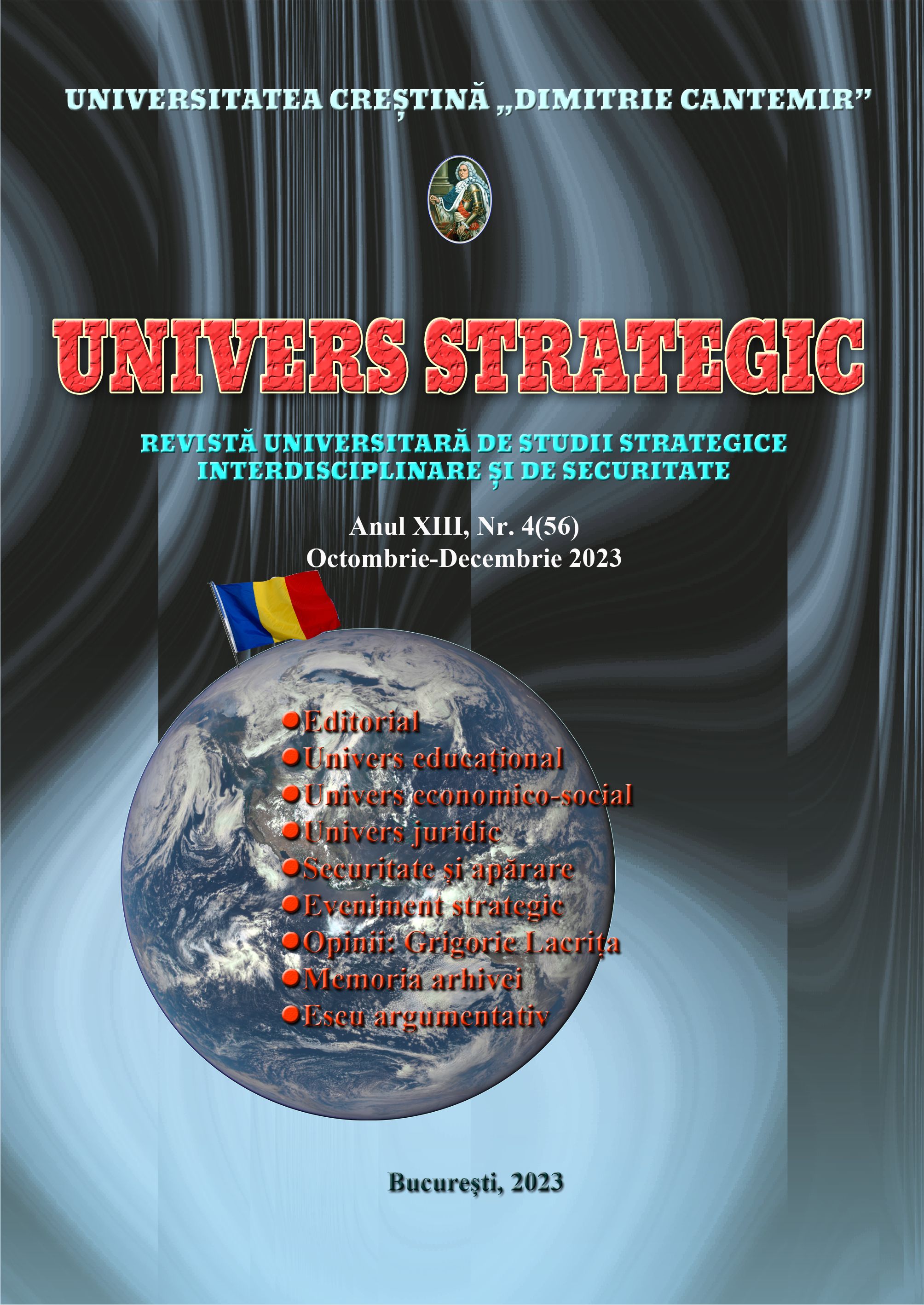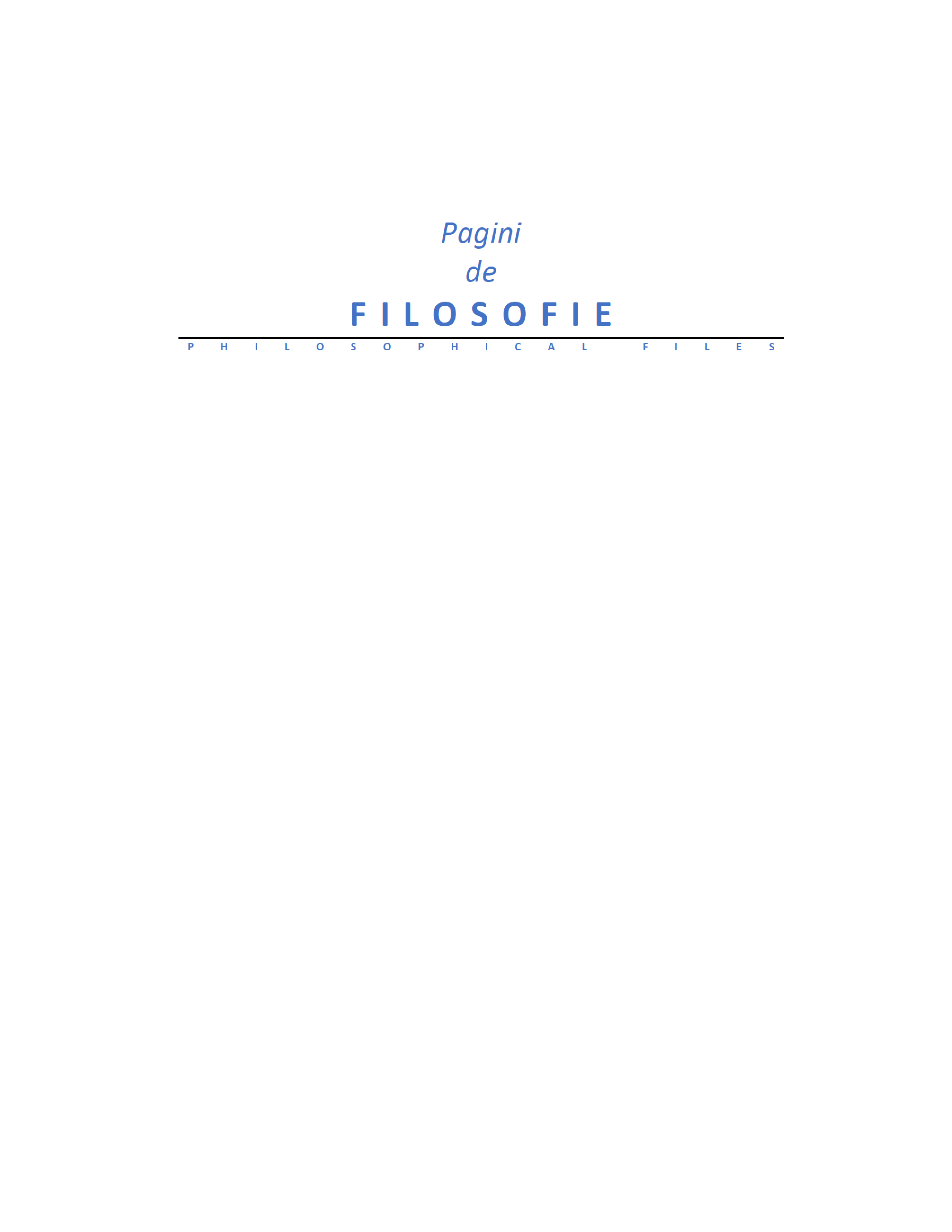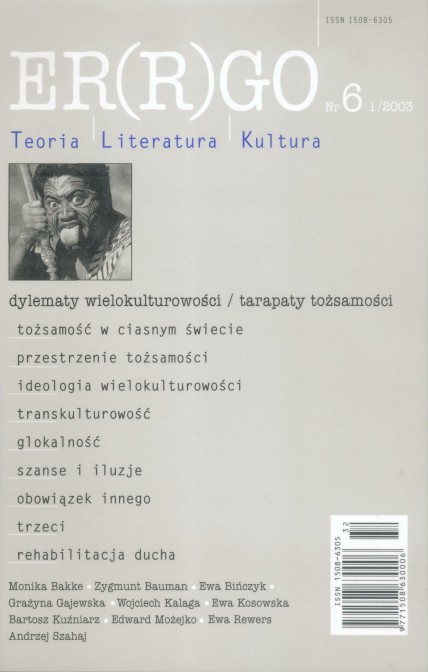
Omówienia: Antropolog w zamkniętym kręgu imputacji
Andrzej P. Kowalski, Myślenie przedfilozoficzne. Studia z filozofii kultury i historii idei, Poznań, Wydawnictwo Fundacji Humaniora 2001
More...We kindly inform you that, as long as the subject affiliation of our 300.000+ articles is in progress, you might get unsufficient or no results on your third level or second level search. In this case, please broaden your search criteria.

Andrzej P. Kowalski, Myślenie przedfilozoficzne. Studia z filozofii kultury i historii idei, Poznań, Wydawnictwo Fundacji Humaniora 2001
More...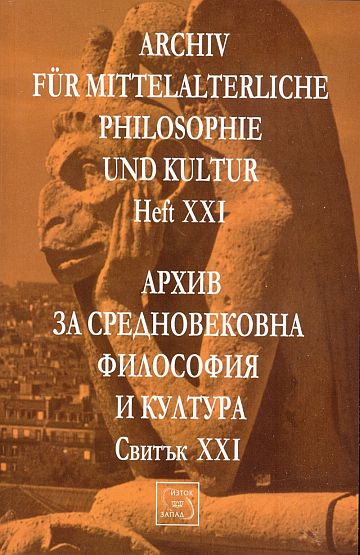
The text celebrates the 30th anniversary of the Summer school in medieval philosophy and culture, established by Tzotcho Boiadjiev in the summer of 1984, and traces the development of the workshop alongside the growth of the Bulgarian school in medieval philosophy. The article traces the historical development of the only academic seminar, started during the time of totalitarian regime in Bulgaria, which is still very much alive, gives opportunity tomany students and young scholarsdevelop research skills and to participate in the academic life of the international studies on the thought of the Middle ages.
More...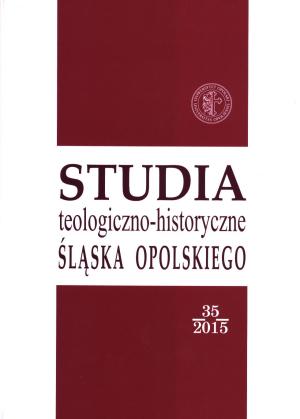
In March 2014 the publishing house Vittorio Klostermann published three more volumes of the writings of Heidegger in the framework of his Collective Edition (Gesamtausgabe). This time they include notes that he made in the years 1933–1942. In his writings the author has affixed the title of Black Notebooks. Along with the release it renewed a debate about the nature of Heidegger’s philosophy and his person. This article attempts to provide preliminary answers to three questions, which, in the context of the new reading of Heidegger are most frequently asked. Firstly, the question is whether the Black Notebooks can teach us something new about relationships between the philosopher and National Socialism and whether it is a reasonable thesis to say that the nature of Heidegger’s philosophy is Nazi – like some authors do. Secondly, the question or Heidegger’s statements about Jews are evidence of his anti-Semitic beliefs, or whether they just belong to certain generally repeated stereotypes. Thirdly, the question about a new philosophical content was put in the analysed notes. Are there ideas contained within which permit a new discourse concerning Heidegger’s thinking? The article points to the difficulties associated with a clear grasp of both the thoughts of the philosopher and his attitudes. “What is genius is ambiguous” – Heidegger was convinced by this and it is in this light which appears, the content of the Black Notebooks.
More...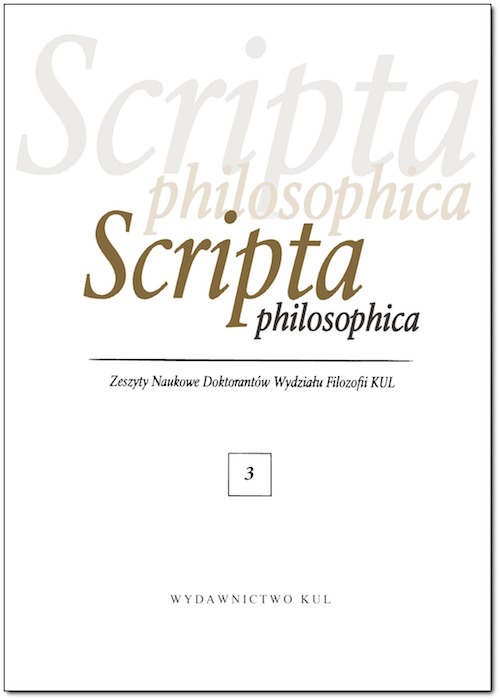

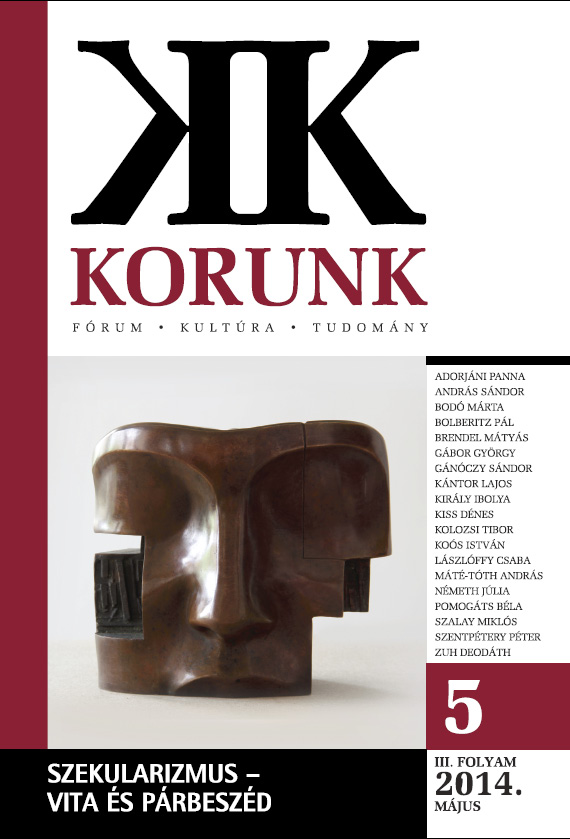
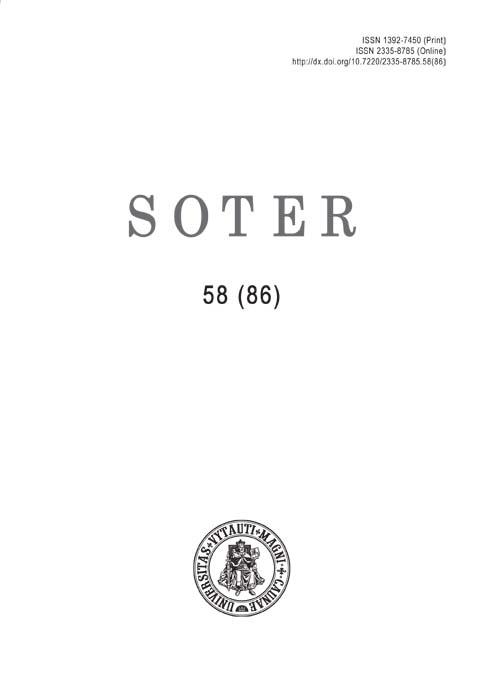
Article deals with Merab Mamardashvili’s suggested view to Marcel Proust’s literature activity. According to Mamardashvili, main interest and creativity pathos of Proust can be expressed by formula “to realize yourself”. But Mamardashvili explicates this personalistic and existential formula of self-realization in concepts, unusual for personalism and existentialism. Mamardashvili says that “to realize yourself” means “to realize impression”. The aim of this article is to explore the conceptual relation between self-realization and realization of impression.
More...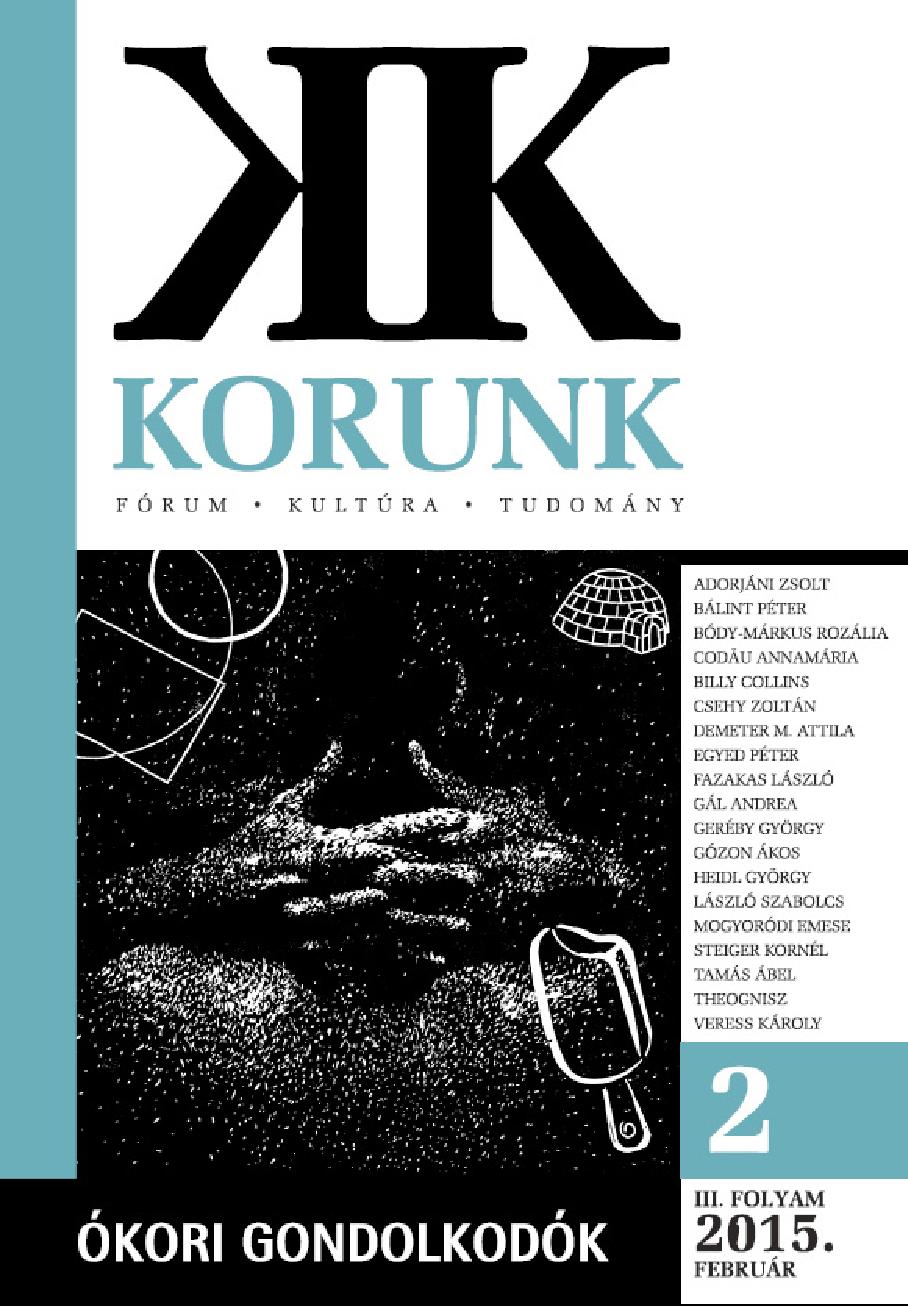


The encounter between the Christian philosopher Justin Martyr, of Samaritan background, and Tryphon the Jew (around 150 AD) offers essential pointers to understand more precisely what “Greek”, or rather Hellenistic, philosophy meant. First, Greek was not a nationality, but a culture, a langue axiale in which Greeks and non-Greeks could exchange and debate ideas. Again, as educated persons, they shared a literary canon (in artificial Greek) and methods of conceptualisation. Consequently, they shared a common framework in terms of the rationality of discussion, which also extended to theology. Rational theology was a legitimate branch of philosophy as the third theoretical discipline according to Aristotle. The inclusion of theology in philosophy shows that the ultimate subject for philosophy was not sterile speculation, or pure theory, but the principles which, in forms of practical syllogisms (Aristotle, NE 1144a 31-2), would lead to action, thereby answering the fundamental problem “how to live”. Greek philosophy was supposed to prepare a “way of life” (P. Hadot). More than that, it was not without reason that successive Roman emperors invited the advice of philosophy in the complexities of the imperial polity.
More...
The epitaphs of married couples often say that the conjugal love lasts even after death. However, this idea is very rarely associated with the faith in the immortality of the soul, and with the conviction that the deceased lovers will somehow live together in the afterlife. The epitaph of Paulina and her husband, Praetextatus is exceptional from this viewpoint. The poem represents the confession of a Roman pagan couple initiated into every possible mystery, and it can be taken as the witness of an early personalist approach.
More...
A favourite genre of ancient moral philosophy is the precept. It is addressed to the disciple by the philosopher-master. He calls the disciple to reflect upon such thoughts and to follow such forms of behaviour whose correctness and usefulness have been previously demonstrated. Quite many of the precepts of Marcus Aurelius, which he addressed to himself, are such that they are inconsistent both with the teachings of stoic moral philosophy and with the other precepts of the emperor. These “layman precepts” are characterised by lethargy, fear of death, and misanthropy, as if in a therapy the soul suffering from traumas were talking to itself in the voice of the therapist. In this paper I argue for the point that the layman precepts do not serve therapy but rather contain the diagnosis of the trauma: the emperor gives an account of his own mental disposition in need of the therapy of moral philosophy.
More...
In this paper, I interpret Catullus’ poem 39 as reflecting to the instability of Roman identity. Characteristically, the Catullan persona uses the concept of urbanitas to attack someone else as rusticus or inurbanus, while the language of his argumentation destabilizes his own position. In the end, the bad habit of smirking everywhere, every time and in every situation attributed to Egnatius by the Catullan speaker emerges as a highly suitable answer – the answer of a sophisticated (i.e. urbanus) reader of the poem’s “Catullus” – to the Catullan attack which tries to stabilize a cultural position for himself (“I am urbanus and I know what it is”) which cannot be stabilized at all. In my interpretation, I read the Catullan poem as participating in the identity struggles of the late republican Rome.
More...
My reading of Plato attempts to show how remembering (anamnesis), conducted through “right thinking” and connected to the tradition of orality, and historical memory, which takes the form of scriptural tradition and conservation, become associated and are confronted with each other in the contemporary reading of the Timaeus, which rests on the pretext of illustrating with a concrete example the Republic’s plan of the ideal city-state. Furthermore, this interpretation tries to reveal the various functions of repetition within the relationship between model and likeness, (actual) reality and (recounted) narrative, “right thinking” and truth, in the context of these two forms of remembrance. My comparative reading of the Timaeus and Critias also focuses the attention on the complexity of Plato’s art of writing and philosophical thinking, as well as on the ways in which the commitment to right thinking can lead to well-founded metaphysical constructions, while also revealing clues to their deconstruction.
More...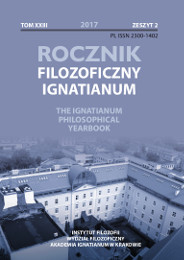
This article issues from a critical analysis of Francisco Suarez’s deliberations regarding the acts and cooperation exhibited by human beings during the process of law-making. Its aim is to systematize the Jesuitical considerations scattered across his various works. The text is intended as a response to the lack of specialist scholarly studies in Polish in this field observable at the present time. It reflects research carried out into the following original Latin texts of Suarez: De legibus ac Deo legislatore (1612), De anima (1621) and De voluntario et involuntario in genere, deque actibus voluntariis in speciali (1629). Suarez, as one of the most refined of the Renaissance philosophers, exerted a tremendous influence on the development of ethics and jurisprudence. The subject of the article itself is both interesting and demanding, requiring as it does an understanding of the principles and forms of human powers — namely, intellect and will. In De Legibus the Jesuit considers the act of legislating as a complex human act on the part of the lawgiver. He distinguishes six acts of intellect and will consequent to which a law can then be created, as well as several indirect acts that have an influence on the process. According to the philosopher, law-making is a consequence of the mutual interactions occurring between acts of the lawgiver’s intellect as it steers both resources towards some given end and the will itself (inasmuch as the latter pursues this goal in accordance with the direction of the intellect).
More...
Thomas Hobbes studied many issues pertaining to language, one of which was the following: is it possible to think at all, and to think abstractly, without language? He assumed that people deprived of language would be able to create their own private languages that would allow them to engage in something understood by them, in their terms, as reasoning. Three hundred years later, Hobbes’s question received an answer from the prominent neurologist and writer Oliver Sacks. Based on his experiences of working with deaf people who do not know any language (including sign languages), Sacks argues that words and other conventional signs are only needed at a certain stage of the thought process. He proves that the scope of thought is much broader than that of words, and that one can, in a certain sense, think without the latter. However, Sacks emphasizes, as Hobbes previously had, that thinking which does not use universally accepted signs is imperfect and incomplete. Such thinking will not be expressed, and so isolates the individual in relation to life in society.
More...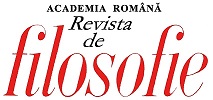
The paper attempts to check whether there is a unity of Romanian systematic philosophy given by some main traits of particular philosophical systems. The main point is that deduction of categories, method, moments of system, and completeness could offer some elements of this national philosophy, together with the search for an integral table of categories, which could bring about the unquestioned legitimacy of using the expression “Romanian philosophy”.
More...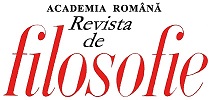
David Hume and Immanuel Kant are two of the most representative exponents of modern philosophy and the European Enlightenment of the 18th century. Their multilateral philosophical research approached the fields of metaphysics and ethics. Their metaphysical visions contain ideational and finalist similarities, even if the Humean one is marked by scepticism and the Kantian one is influenced by idealism. Instead, their ethical conceptions, which start from different premises, are situated in antithetical positions. Hume bases his ethics on the pre-eminence of feelings and passions over reason, while Kant builds his ethical project on the value of reason to the detriment of feelings. The question that arises is to what extent their metaphysical and ethical conceptions can actually be applied to a concrete and diverse human experience. The suggested hypothesis is that their degree of applicability, relevance, or usefulness in particular cases of concrete human experience is relatively small. The conclusion is that the objections and criticisms made about their metaphysical and ethical views support this hypothesis.
More...